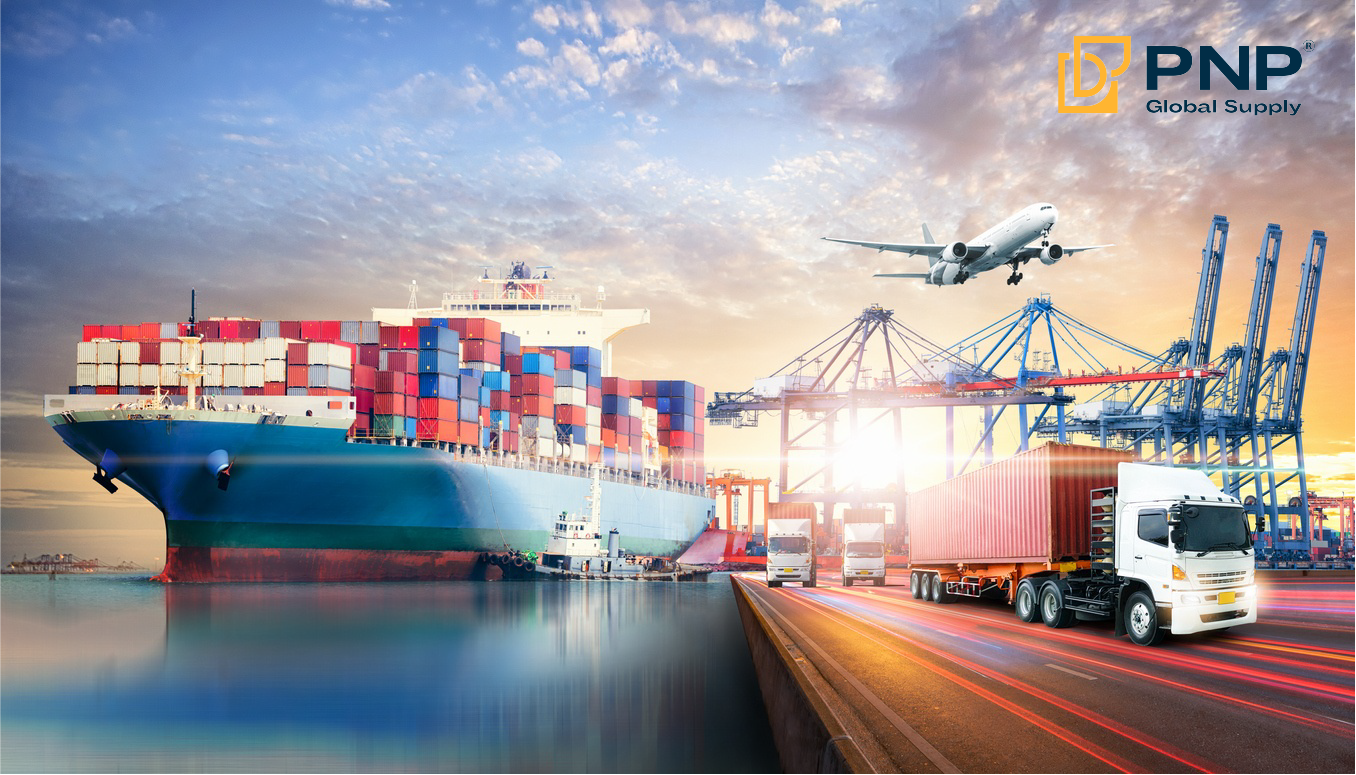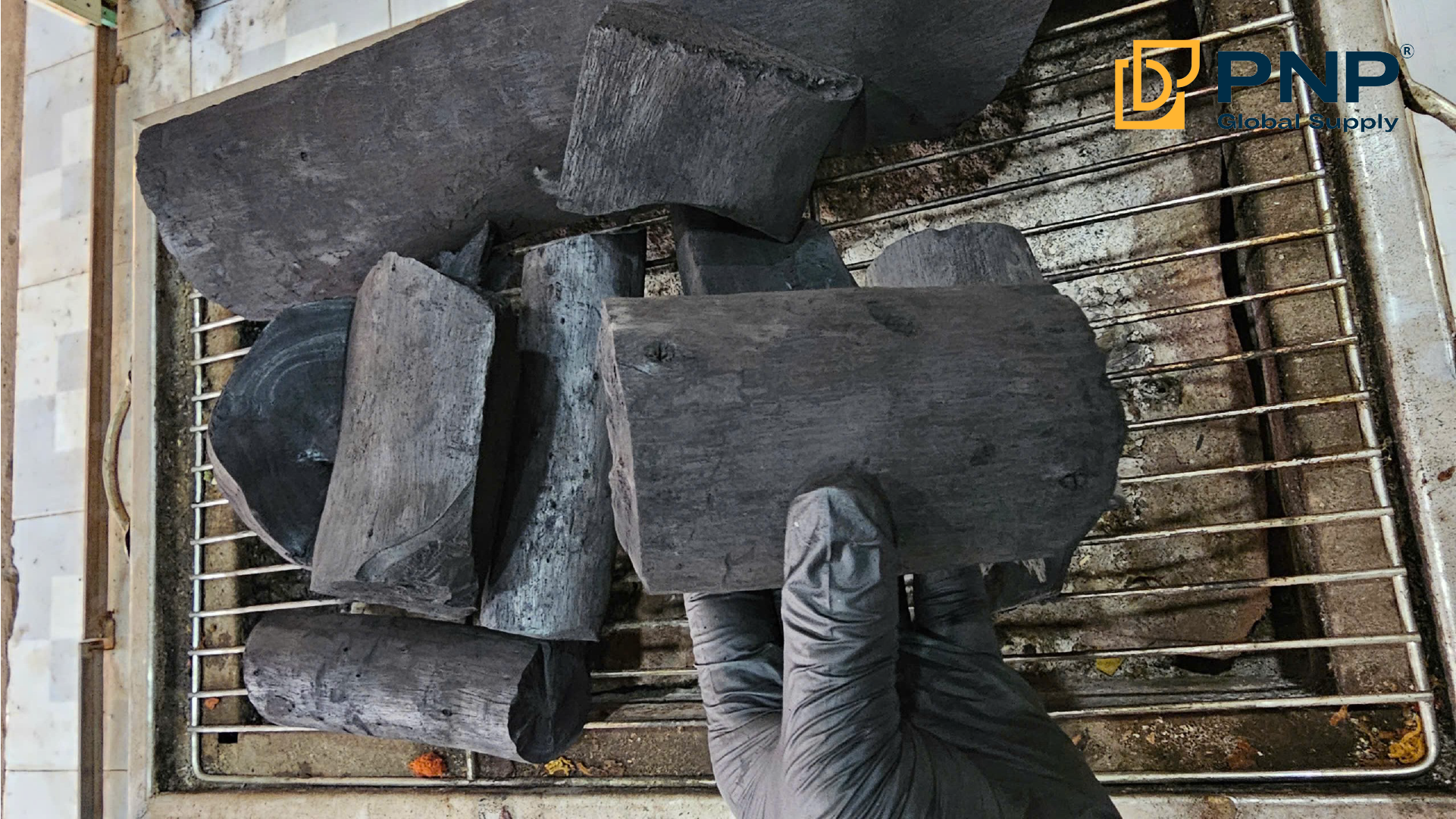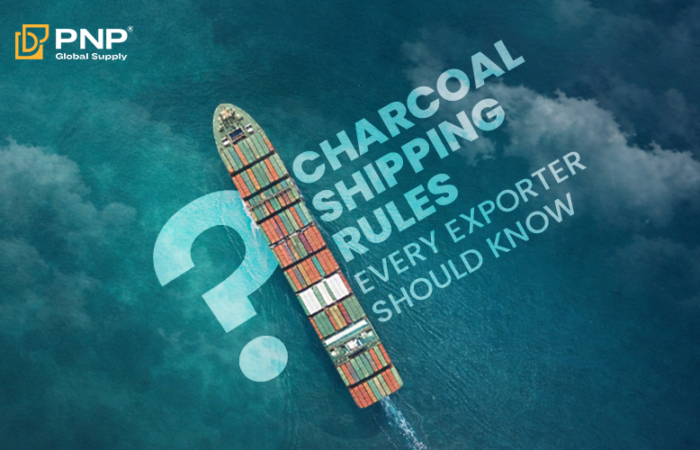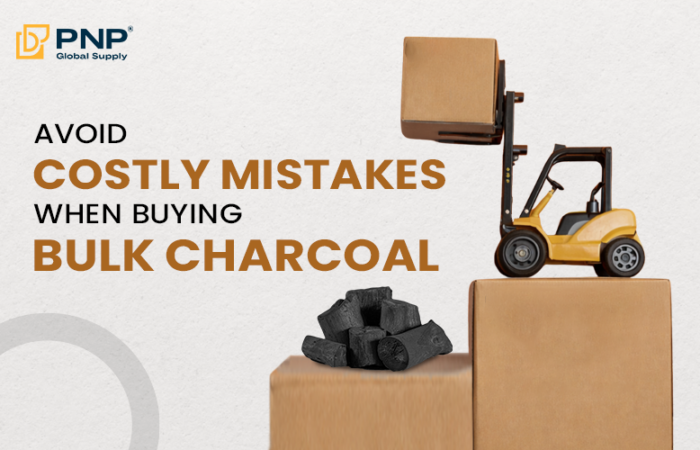In the charcoal export business, shipping isn’t just a step in the process—it’s often the biggest expense. Whether you’re working with wood charcoal importers in Europe, the Middle East, or Asia, the way you handle logistics directly affects your profit margin and your ability to compete.
The question every exporter asks is: how to decrease shipping costs without compromising on delivery time or product quality? The good news is, there are practical ways to cut expenses if you understand how freight works and know how to make smart choices.

Why Shipping Costs Matter So Much
Shipping costs are tied directly to the charcoal price that importers pay. For heavy, bulky goods like charcoal, even small increases in freight rates can raise the final price significantly. That means exporters who can reduce shipping costs have a clear advantage:
- Their prices stay competitive in international markets.
- They maintain better relationships with wood charcoal importers.
- Their charcoal business becomes more profitable and sustainable.
It’s not just about saving money—it’s about staying ahead in a competitive market.
The Role of Sea Freight in Charcoal Export
Most charcoal shipments rely on sea freight shipping. It’s the most cost-efficient way to move large volumes across continents. But sea freight comes with challenges: container shortages, seasonal demand spikes, and congestion at busy ports.
If you’re exporting charcoal, you’ll notice that freight rates don’t stay fixed. They rise and fall depending on:
- The time of year (peak season vs. low season).
- Global fuel prices.
- Which port you ship from.
- How well-prepared your export documents are.
That’s why knowing the logistics landscape is the first step in learning how to decrease shipping costs.
Following the Right Procedures for Exporting
For any exporter, smooth logistics start with proper planning. If you skip steps in the procedures for exporting, you’ll likely face extra charges. A few essentials include:
- Packaging carefully so the goods don’t get damaged in transit.
- Preparing complete documents (invoices, certificates of origin, packing lists) to avoid customs delays.
- Booking shipping space early instead of waiting until the last minute.
- Choosing efficient ports where loading and unloading move quickly.
Getting these basics right means fewer delays, fewer penalties, and lower overall costs.
Practical Tips on How to Decrease Shipping Costs
Reducing shipping expenses isn’t about one single tactic—it’s about combining several smart strategies. Below are practical tips that many exporters in the charcoal business use to keep costs under control while maintaining smooth and reliable deliveries to wood charcoal importers.
Ship at the Right Time
Timing is one of the biggest factors in shipping costs. Freight rates usually spike during peak seasons, such as the weeks before major holidays (Christmas, Lunar New Year, or Eid). This is when shipping lines are at full capacity, and exporters often pay premium prices just to secure space.
For charcoal exporters, planning shipments during quieter periods makes a huge difference. Off-peak months often come with lower freight charges and more available vessel space. Additionally, flexibility is key. If your buyer can accept a shipment a little earlier or later, you can adjust schedules to take advantage of cheaper rates.
Some exporters also split shipments across different months to balance costs. Instead of sending everything during one expensive season, they spread it out, keeping their average freight price lower.
Choose Ports Wisely
Not all ports are equal. The location you choose for export can directly affect both cost and efficiency. Shipping from a port closer to your charcoal production site helps reduce inland trucking expenses, which can sometimes be as costly as the sea freight itself.
For example, in countries like Vietnam or Indonesia, choosing a port near the main charcoal-producing regions (instead of a major but faraway port) saves time and money. Another important factor is congestion—large ports may seem attractive because they have more connections, but delays can result in demurrage fees and storage costs.
A strategic exporter balances proximity, port fees, and reliability. By choosing wisely, you avoid unnecessary inland costs and long waiting times that drive up the total logistics bill.
Partner with Experienced Freight Forwarders
Working directly with shipping lines isn’t always the best option—especially if your volumes are not extremely large. This is where freight forwarders come in.
An experienced freight forwarder who understands the charcoal market can negotiate competitive rates, handle documentation, and even advise you on the best shipping routes. They also know how to deal with common challenges such as container shortages, customs inspections, or last-minute changes in sea freight shipping schedules.
For new exporters, forwarders can be lifesavers. They guide you through the procedures for exporting, ensuring paperwork is accurate and preventing expensive mistakes that could delay your cargo. For established exporters, they often secure discounts thanks to their long-term relationships with carriers.
Consolidate Orders
One of the simplest but most effective ways to reduce shipping costs is order consolidation. Shipping half-empty containers wastes money because you still pay for the full space.
By combining multiple small orders into a single full container load (FCL), you lower your per-unit shipping cost. Exporters who serve multiple clients can group orders going to similar destinations, making it easier to fill containers completely.
In some cases, freight forwarders also offer consolidation services where shipments from different exporters are combined into one container. This option works well for smaller businesses that don’t yet have enough volume to fill a container on their own.
Watch the Shipping Schedules
Many exporters lose money simply because they book too late. Last-minute bookings almost always come with higher rates. To avoid this, keep an eye on carrier schedules and secure your space well in advance.
Some exporters monitor several carriers at once, comparing transit times, prices, and availability. By doing this, they can select the most cost-efficient option rather than being forced to accept whatever is available at the last minute.
Tracking shipping schedules also helps with planning production. If you know a vessel is leaving in three weeks, you can adjust your production timeline to make sure your charcoal is ready on time—avoiding costly delays or the need to switch to a more expensive shipping option.
Negotiate Long-Term Deals
If you ship charcoal on a regular basis, long-term contracts with carriers or freight forwarders can provide significant savings. These agreements often guarantee you a certain rate over a set period, protecting you from sudden price spikes in the market.
Long-term partnerships also bring other advantages:
- Priority when space is limited during peak seasons.
- Faster support if problems arise.
- Stronger relationships that make negotiations easier in the future.
Even if you can’t commit to large yearly volumes, signing contracts for quarterly or seasonal shipments can still lock in better rates compared to booking one shipment at a time.
Learn more about how to import charcoal in the following article: How to Start a Mangrove Charcoal Import from Vietnam?

Working with Wood Charcoal Importers
Good communication with wood charcoal importers is key to lowering costs. Importers who trust you may:
- Allow flexible shipping times so you can choose cheaper freight options.
- Share shipping costs on larger orders.
- Commit to repeat orders, giving you the stability needed to negotiate better freight rates.
Strong partnerships make logistics easier for both sides.
Smart Practices for Charcoal Business Owners
Every successful charcoal business keeps a close eye on shipping trends. A few habits worth adopting are:
- Tracking global sea freight shipping rates.
- Keeping backup routes in case one port gets congested.
- Building long-term relationships with reliable charcoal suppliers and freight agents.
- Staying informed about changes in customs regulations that might affect costs.
Being proactive, not reactive, is what helps exporters stay profitable.
Finding Reliable Charcoal Suppliers and Partners
If you’re an importer, choosing the right charcoal suppliers makes a big difference. Reliable suppliers often have experience with exporting and already know how to navigate shipping challenges.
Countries like Vietnam, Indonesia, and parts of Africa are known for charcoal production. Exporters in these regions often benefit from strong production capacity and access to major ports, which can help lower freight costs.
When working with suppliers, always look for those who understand both quality standards and international shipping procedures. Partnering with the right company ensures smoother transactions and fewer unexpected costs.
At PNP Charcoal, we provide high-quality wood charcoal with reliable export services, helping importers save on logistics while maintaining product excellence. Visit our website: PNP Charcoal to explore our range of premium charcoal and discover how we can be your trusted partner in the global charcoal business.

Conclusion
Learning how to decrease shipping costs in the charcoal industry isn’t about cutting corners—it’s about being smarter with timing, routes, and partners. From shipping during off-peak seasons to consolidating loads and working with the right freight forwarders, there are many ways exporters can reduce shipping costs while keeping their charcoal price competitive.
For wood charcoal importers, building long-term partnerships with reliable charcoal suppliers ensures smoother shipments and lower expenses. For charcoal business owners, these strategies mean stronger profits and long-term growth.
At the end of the day, reducing costs is more than just a logistics strategy—it’s the foundation of a sustainable and competitive charcoal export business.
________________________________
Contact us for more information
Facebook: PNP Charcoal
Instagram: PNP Charcoal
Email: info@pnpglobalsupply.com




